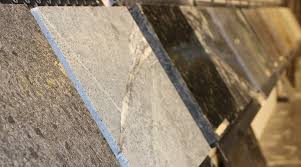Choosing the right natural stone supplier is crucial for ensuring the success of your project, whether it’s for a home renovation, a commercial building, or a landscaping endeavor. The quality of the stone, the reliability of the supplier, and the range of services offered can significantly impact the outcome.
Here are some key things to look for when selecting a natural stone supplier.
1. Quality of Stone
The quality of the stone is paramount. High-quality natural stone not only looks better but is also more durable and requires less maintenance over time. Look for suppliers who source their stone from reputable quarries and who have stringent quality control measures in place.
Tips for Assessing Quality:
- Source: Inquire about the origin of the stone. Reputable suppliers often source from well-known quarries.
- Inspection: Visit the supplier’s showroom or warehouse to inspect the stone in person.
- Consistency: Check for consistency in color, texture, and veining, especially if you’re ordering in bulk.
2. Range of Products
A good natural stone supplier should offer a wide range of products to suit different needs and preferences. This includes various types of stone such as granite, marble, limestone, travertine, and slate, as well as different finishes and sizes.
Tips for Evaluating Range:
- Variety: Look for a supplier with a diverse inventory to ensure you find the perfect stone for your project.
- Customization: Check if the supplier offers custom cutting and finishing services.
- Samples: Request samples to see how different stones look in your intended environment.
3. Reputation and Reviews
The reputation of a natural stone supplier can tell you a lot about the quality of their products and services. Examine reviews and testimonies from past clients to determine their level of satisfaction and experiences.
Tips for Checking Reputation:
- Online Reviews: Search for reviews on platforms like Google, Yelp, and industry-specific websites.
- References: Request references from previous customers from the provider.
- Industry Recognition: Look for suppliers who are members of professional organizations or have received industry awards.
4. Experience and Expertise
Experience matters in the natural stone industry. Suppliers with extensive experience are more likely to provide high-quality products and reliable service. They can also offer valuable advice and insights based on their knowledge.
Tips for Assessing Experience:
- Years in Business: Consider how long the supplier has been in operation.
- Expert Staff: Check if the staff are knowledgeable and can answer your questions about different types of stone and their applications.
- Portfolio: Review the supplier’s portfolio of completed projects to see examples of their work.
5. Customer Service
Good customer service is essential when working with a natural stone supplier. You want a supplier who is responsive, helpful, and committed to ensuring your satisfaction throughout the purchasing process.
Tips for Evaluating Customer Service:
- Responsiveness: Assess how quickly the supplier responds to your inquiries.
- Professionalism: Look for friendly and professional communication.
- Support: Ensure the supplier offers support throughout the selection, purchasing, and installation processes.
6. Sustainability Practices
In the building and remodeling sectors, sustainability is becoming more and more crucial. Choosing a supplier who prioritizes environmentally friendly practices can help reduce the environmental impact of your project.
Tips for Evaluating Sustainability:
- Eco-Friendly Sourcing: Inquire about the supplier’s sourcing practices and whether they use sustainable quarrying methods.
- Certifications: Look for certifications or affiliations with sustainable organizations.
- Waste Management: Check if the supplier has waste reduction and recycling programs in place.
7. Competitive Pricing
While quality should not be compromised for cost, it’s still important to find a supplier who offers competitive pricing. This means fair pricing for the quality of stone and services provided.
Tips for Assessing Pricing:
- Quotes: Get quotations from several vendors so you can evaluate costs.
- Value: Consider the overall value, not just the lowest price. Factor in quality, service, and any additional costs such as shipping or custom cutting.
- Transparency: Look for clear and transparent pricing without hidden fees.
8. Availability and Lead Times
The availability of the stone and the supplier’s lead times can affect your project timeline. Ensure the supplier can meet your schedule and has the stone in stock or can source it within a reasonable timeframe.
Tips for Evaluating Availability:
- Inventory Levels: Ask about current stock levels and lead times for out-of-stock items.
- Delivery Times: Inquire about shipping and delivery times.
- Flexibility: Check if the supplier can accommodate urgent or large orders.
9. Installation Services
Some natural stone suppliers offer installation services or can recommend reputable installers. This can be a significant advantage, ensuring that the stone is installed correctly and efficiently.
Tips for Installation Services:
- In-House Installation: Check if the supplier provides installation services and the qualifications of their installers.
- Recommended Installers: If the supplier does not offer installation, ask for recommendations.
- Warranty: Inquire about any warranties or guarantees on the installation work.
10. After-Sales Support
Good after-sales support can make a big difference in your overall experience. This includes support with maintenance, repairs, and any issues that arise after the stone has been installed.
Tips for After-Sales Support:
- Maintenance Advice: Look for suppliers who provide guidance on stone care and maintenance.
- Repair Services: Check if the supplier offers repair services or can recommend specialists.
- Customer Service: Ensure the supplier is responsive to any post-purchase inquiries or issues.
Select the Right Natural Stone Supplier
Selecting the right natural stone supplier is a critical step in ensuring the success of your project.
By considering factors such as the quality of the stone, the range of products, the supplier’s reputation and experience, customer service, sustainability practices, pricing, availability, installation services, and after-sales support, you can make an informed decision that meets your needs and expectations.
Taking the time to research and evaluate potential suppliers will pay off in the long run, resulting in a beautiful, durable, and well-installed natural stone feature for your space.






